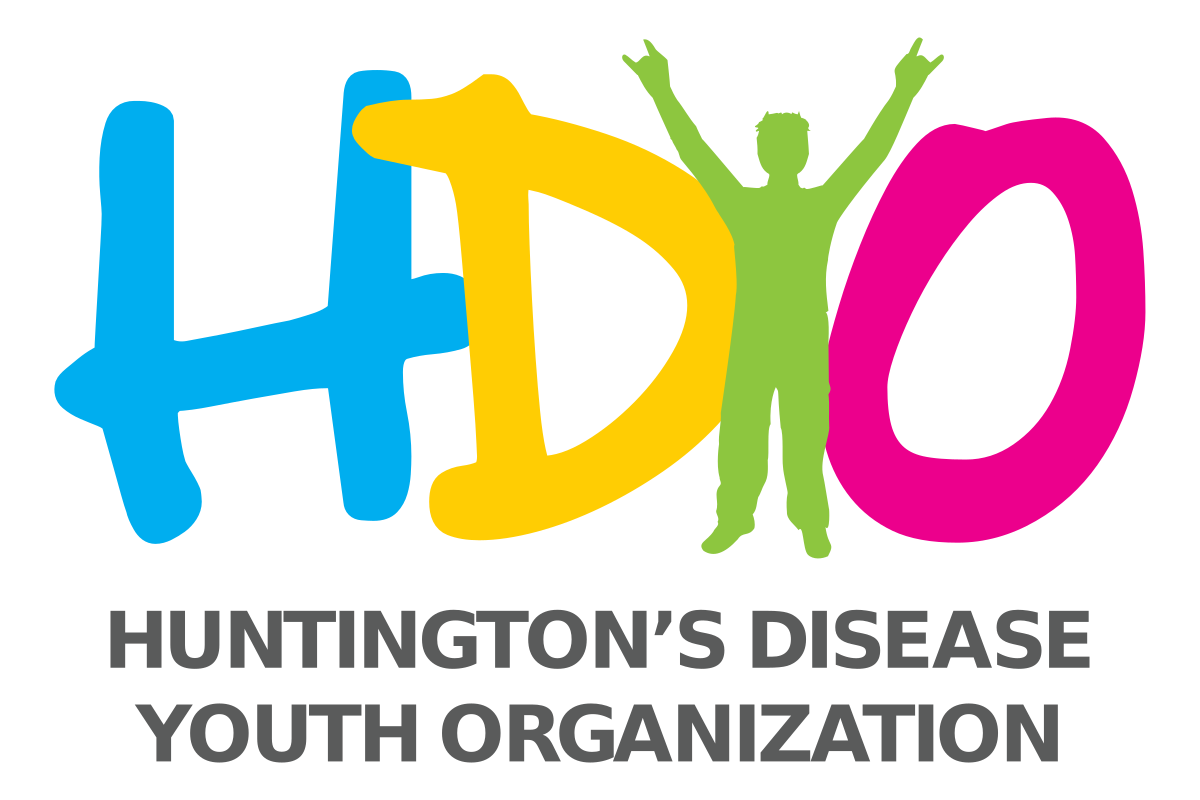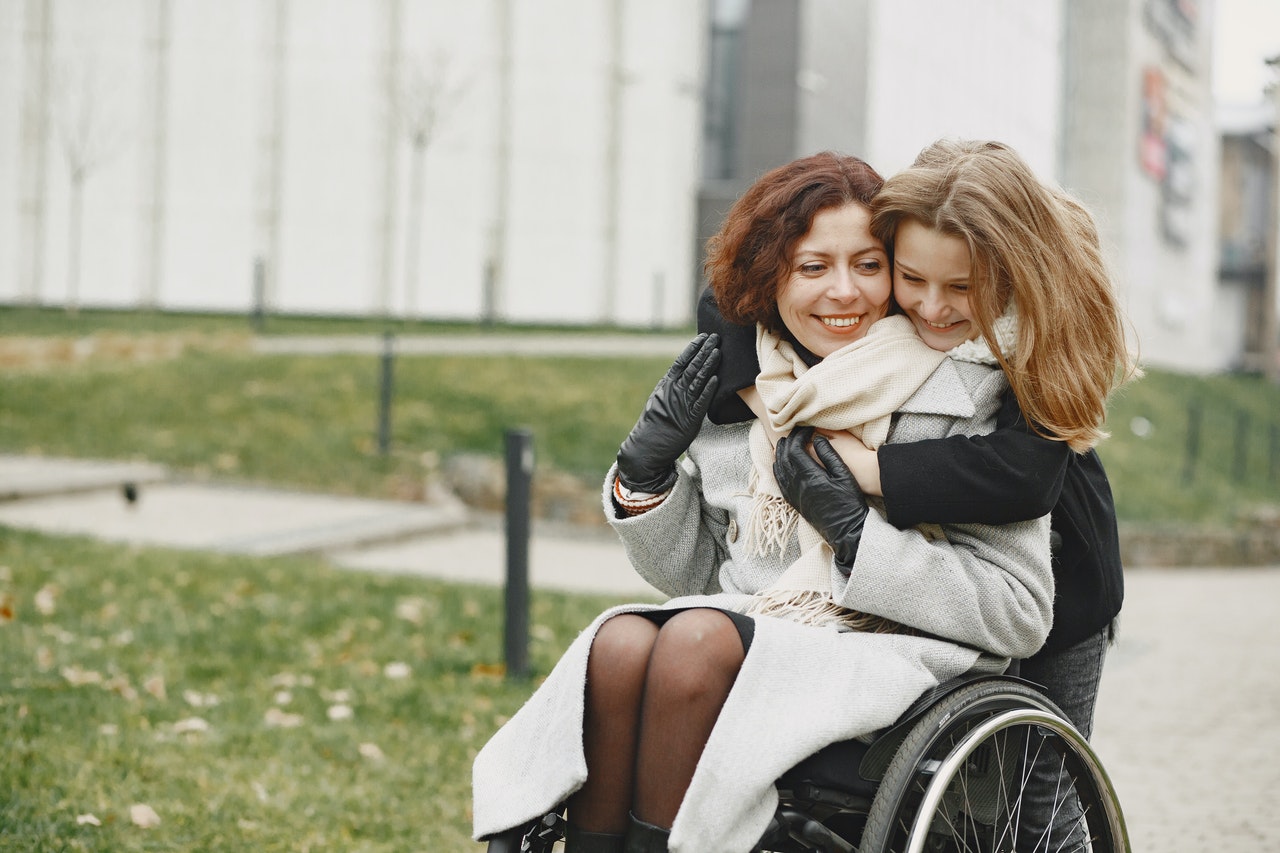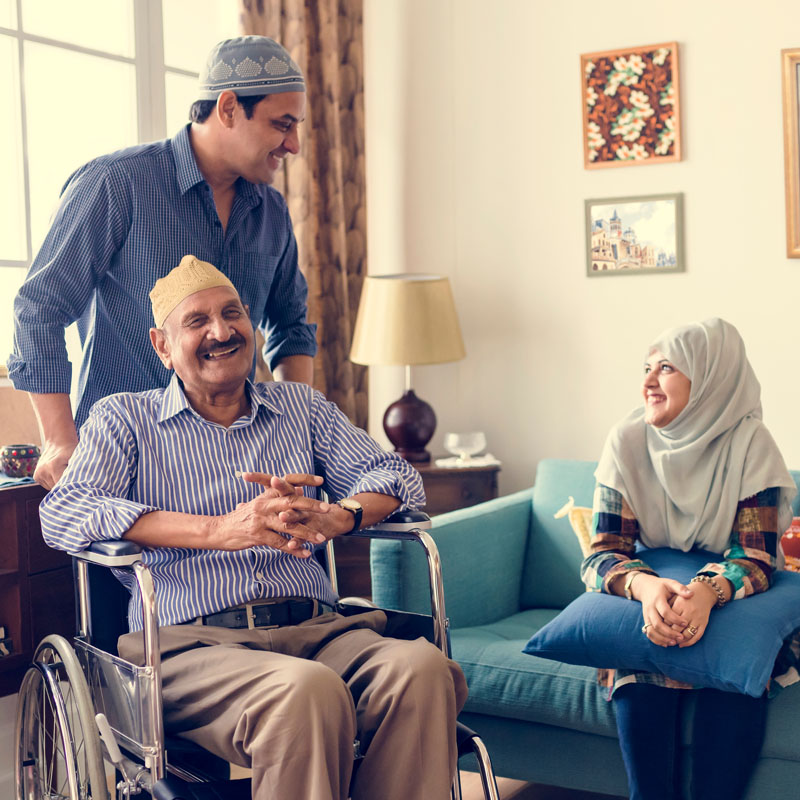Feeling Embarrassed
November 24, 2021

HDYO has more information about HD available for young people, parents and professionals on our site:
www.hdyo.org
When someone close to you has an illness it can sometimes put you in situations that may cause you to feel embarrassed or ashamed. With Huntington's disease in particular, the involuntary movements and behavioural symptoms caused by the condition can create various embarrassing situations - ones which can draw unwanted attention and be awkward to explain or understand.
Firstly, let's make this very clear, it is perfectly ok for a young person to feel embarrassed due to the actions of someone with Huntington's disease. In fact, if this person is close to you, it is a very normal feeling to have. Lots of young people go through a stage in their life where they feel embarrassed by the actions or behaviour of someone with Huntington's disease. So if you are one such young person going through a stage of feeling embarrassed, don't feel bad about that.
This section is here to try and help you realise that what you feel is perfectly normal and to not be ashamed of these feelings. We will also discuss how to overcome this embarrassment so that it doesn't bother you so much when you are with the person who has Huntington's disease.
Why do we feel embarrassed?
What reasons do young people have for feeling embarrassed when spending time with someone who has Huntington's disease?
Standing out
The involuntary movements and behavioural symptoms of Huntington's disease can cause people with the condition to do or say 'unusual things' at times. When these unusual things happen in public, or in the company of others, it draws a lot of attention onto the person with Huntington's disease and those with them. Essentially, it can make you stand out from the crowd in a way which may lead to feelings of embarrassment.
'I felt embarrassed quite a lot during my teen years when with my mom. I remember whenever we went shopping she would accidently knock over shop displays every time we went. Once she'd knocked it over, all the staff would come and everybody would be looking at us. I usually turned red with embarrassment at that point! But it got to the stage where I really didn't want to go shopping with her because I didn't want people looking at us and judging all the time.' Sarah
The quote above gives an example of how the involuntary movements can cause embarrassment for young people accompanying someone with Huntington's disease, but the behavioural aspects of the condition can also cause similar feelings amongst young people.
'I remember one time, I had a friend round our house and we were playing computer games in the living room. Then my dad came over and shouted at us both, he told my friend to go home immediately. It was so out of character of my dad, normally he was so relaxed. I had friends come around to our house all the time and he'd never shouted at them before, but he got really angry at us that day. Unsurprisingly my friend left in a hurry and I ended up being really embarrassed and angry with my dad, we had an argument afterwards because of it and I was less confident about bringing any friends over in future.' Daniel
Reacting with embarrassment is a perfectly natural thing to do as a young person and happens often. If you've read HDYO's 'How does Huntington's disease affect people?' section, you will know that involuntary movements and behavioural aspects are both symptoms of Huntington's disease and that the person with Huntington's disease can't help it when they trip up, break something or get angry. But even knowing this, it is still hard to avoid feeling embarrassed when someone you are with knocks over a shop display, shouts at your friends unexpectedly, or generally causes a scene.
The reaction of others
One of the main reasons these situations are embarrassing for young people is because there are others around to see the incident. If there was nobody around when the person you are with, who has the condition, falls over or does something to draw attention then it wouldn't be anyway near as embarrassing. It's the fact that there are other people around to witness the incident and (more importantly) how they react to the incident that causes young people to feel embarrassed about being around someone with Huntington's disease.
'When he was still well enough my dad used to take me to watch our local football team, we had season tickets! I enjoyed going with him but, because of his movements, he kept accidently kicking the chair of the person in front of him every game. It was always the same family sitting in front of us too, and they would get annoyed with my dad. Sometimes they would blatantly just stare at him for ages and then start talking amongst themselves. I knew they were talking about my dad and it made me really angry. I wanted to shout at them and tell them to mind their business but I never did, it made me feel embarrassed and angry. Usually if they were staring or being rude I would kick the back of their chairs really hard and let them know I was watching them.' Scott

Witnessing people staring at the person with Huntington's disease can really cause young people to feel a mix of both anger and embarrassment. Anger because people are staring and being rude, but also embarrassment because it always seems to be them that draws the attention of the crowd.
'I remember walking to a restaurant one night while on holiday. We went to this place that had several restaurants along both sides of the street. As we walked down the middle of this street it was as if everyone stopped what they were doing and started staring at us the whole way down. I was furious and dreaded the thought of having to go back there.' Scott
The result of embarrassment
Unfortunately feeling embarrassed by the actions of someone with Huntington's disease leads to more issues for young people and their families. Because of the potential embarrassment, young people may start to become more distant and not want to be seen with the person who has the condition. This can lead to a broken relationship between the young person and the person with Huntington's disease. Time that was spent together may now be spent apart.
'My mom used to come to all my soccer games and watch me play. But my team would start asking questions about my mom, like why she couldn't stand still and stuff. I felt embarrassed and ashamed almost, and told my mom not to come to any more soccer games to watch me play. I didn't want to have to handle the questions from everyone.' Jessica
Feeling embarrassed can also lead to a sense of resentment and anger from the young person, often towards the person who has Huntington's disease. This tends to happen because the young person is having to deal with and explain these embarrassing situations that are usually not the young person's fault. Young people may feel the need to place the blame of these incidents on someone, so they can direct their frustration somewhere. Often that 'someone' is the person with Huntington's disease, who is usually causing these incidents, and this can lead to feelings of resentment from the young person.
'When the kids at school realised my dad had something wrong with him they began bullying me about my dad's illness. I took a lot of insults because of my dad's movements and it really hurt me emotionally. I felt so angry with everybody, including my dad because he was the reason I was getting all this abuse in the first place. At that time I just wanted a normal dad who didn't stand out.' Gary
Overcoming embarrassment
Embarrassment can lead to young people feeling a sense of resentment and anger towards the person with Huntington's disease. It can also damage relationships within the family and cause extra stress for everybody involved. Overcoming embarrassment does happen with most young people, but it tends to take time - sometimes a lot of it.
'I didn't get past my feelings of embarrassment until I was about 17. So I guess from around 13 to 17 I spent my time feeling frustration and anger towards my dad because he had Huntington's disease. Looking back now it almost makes me feel ashamed of myself, but I know that I couldn't have done much about it at the time. I didn't have any support to deal with it back then.' Gary
Without support, young people can hold feelings of resentment, embarrassment and anger can go un-dealt-with. This can lead to many more issues for a young person and sometimes a sense of 'lost time' with their loved one who has Huntington's disease, when the young person finally overcomes their embarrassment. It is essential that this embarrassment is overcome, and this can be achieved by support being provided for the young person. But there is also an element of overcoming embarrassment that can only be achieved by the young person themselves. Beginning on the road to overcoming embarrassment starts by doing two things: accepting and understanding. Accepting that the disease is in our lives and understanding how it affects the people close to us who have the condition.
Understanding the disease ourselves: why do people with Huntington's disease do the things they do?
The first step towards overcoming embarrassment is to understand the disease and learn how it affects people. The disease mainly affects people in three ways: Involuntary movements, cognitively, and behaviourally.
Involuntary movements: The first category, involuntary movements, means that a person has no control over some of the movements they make. Sometimes people with Huntington's disease will find it hard to keep still, will fall over or lose their balance because of the involuntary movements. So when someone with Huntington's disease accidently knocks over a shop display, it's important that people try to understand it's not the fault of the person with the condition, and it is a symptom of the disease that is causing them to be clumsy.
Cognitive: The second category, cognitive, is basically a word to describe a person's thought process. People with Huntington's disease may find it hard to think clearly, answer questions or concentrate. This is because of the cognitive effect of the disease. It might frustrate you that someone with the condition keeps asking the same question or takes ages to reply to you, but this is all a part of the disease and how it works. People with Huntington's disease will take longer to do things because they have to think about it more.
Behavioural: The third category, behavioural, means that a person's behaviour may change when they have Huntington's disease. Someone with the disease may get angry or frustrated, they may shout at you or your friends unexpectedly, and say or do unusual things that they perhaps wouldn't have done before. These are known as behavioural changes and are a part of the disease.
It's important that, as young people, we educate ourselves and better understand Huntington's disease. It is one thing knowing the name of the disease, but it's another to understand how it affects people. By understanding how the disease works we can begin to recognise that the person with Huntington's disease can't help making a scene sometimes, it is not their fault - it is the disease. However, we do understand that it is still difficult to cope with at times. If you wish, you may also find out more about how Huntington's disease affects people and you may want to check out HDYO's 'What does it feel like to have Huntington's disease?' section where you can play some really simple games to help understand what it is like for people with Huntington's disease.
Accepting Huntington's disease

The next step towards overcoming embarrassment is to learn to accept Huntington's disease in your life. This is not an easy task and it usually takes a while to achieve. Here's where you need to use your understanding and knowledge of the disease to help accept that the condition affects someone close to you. By accepting that the person has Huntington's disease and understanding that they can't help doing the things they sometimes do, you will begin to feel a lot less embarrassed about being around that person. You may even be able to begin to see the funny side when these situations arise.
Seeing the funny side
'As a family we had gone out for a walk one day. My dad has Huntington's disease and his movements make him a little unbalanced. We decided to stop and have some lunch as we'd been walking for some time. One by one we all sat down on this bench to eat our food and then suddenly we heard this 'thud' at the end of the bench. We all looked to see that my dad had completely missed the bench and landed right on his bum. Everybody started laughing so hard, including my dad. It was hilarious.' Jason
Stories like these have the potential to be embarrassing for a young person, but by accepting that these situations will happen and understanding that it's nobody's fault, it's a lot easier to laugh about the whole event and not let it affect you too much.
'We used to take my mom out every week for a walk around downtown. She used to do the weirdest thing. She would stop and fart really loudly right there in the middle of the street! Everybody could hear it! We use to laugh so much and my mom would just act like nothing had happened! Also, the following week when we went for our next walk around town, she would stop in the exact place that she had farted last week and say "Hey, I farted here last time!" It was so funny. She is a comedian at times... a smelly one!' Brett
It's not always easy to do, but it certainly helps when you can to laugh at these situations and see the funny side of things. Laughter can help make you feel better. As they say, laughter is the best medicine.
Explaining Huntington's disease to others
In some instances, laughter alone isn't enough or isn't suitable, and as a young person you will need to find a different way to accept and handle the incident. Usually these instances are when there are others around who are making you feel uncomfortable by their reaction to the person with Huntington's disease. In these situations you can use your understanding and knowledge of the disease to explain to these people that the person you are with has Huntington's disease and highlight the relevant symptoms it can cause.
'We were in a shop one time and my mom accidently bumped into someone. They were ok but looked confused about my mom's movements. So I apologised and told them that my mom had Huntington's disease and has involuntary movements. They were a lot more accepting of the incident afterwards which was really nice.' Grace
Explaining the disease is one of the best things to do in these situations, it can really help others to understand why the person with Huntington's disease is acting the way they are. It can also help you feel more confident about being around the person who has the condition and less fearful about spending time with them or answering any questions people may ask. Of course, there may be times when the people involved are being quite rude and do not look like the type who it would be worth explaining the disease to. These instances may make you feel angry but it's important not to let that anger get the better of you. For these situations the best thing to do is to simply ignore them, put that smile back on your face and carry on with what you were doing with the person who has Huntington's disease.
Being positive about Huntington's disease

Another way to combat embarrassment, and the stigma that Huntington's disease can generate, is to be positive and proactive. Fundraising and generating awareness are two great ways of getting your family and friends involved in something positive with regards to Huntington's disease. It is amazing how much of a positive impact both can have on not only family life but the support you receive from others such as your friends. For more information on fundraising, try HDYO's fundraising section for some ideas on what you, your family and your friends could do to raise money and awareness for Huntington's disease.
Spending time together
Spending time with the person who has the disease is very important and, as we have seen, the embarrassment issue can lead to far less time being spent together. Young people may be able to overcome their feelings of embarrassment by educating themselves on the disease and learning to accept that Huntington's disease is a part of their lives. As a result, young people may find it easier to spend time together with the person who has the disease, and enjoy each other's company. But of course, you only have to spend time with the person who has the disease if you want to and it is entirely your choice.
Support
Remember, feeling embarrassed is a perfectly normal feeling to have as a young person when with someone who has Huntington's disease. If you would like to speak to somebody about your feelings you can contact HDYO privately and we will be happy to help. You may also find support from your local Huntington's disease association, who may also be able to offer support to you on a local level.



